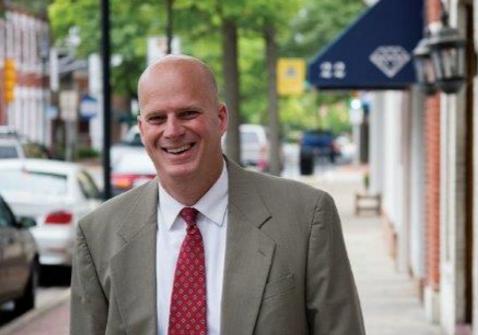I listened with great interest to the Talbot Spy interview last week with Talbot County Sheriff Joe Gamble. He provided no-nonsense insight into police training and culture.
The timing of the interview coincided with recent acts of deadline violence aimed at policemen in Dallas, TX and Baton Rouge, LA. These actions have happened against a backdrop of alleged police brutality targeting primarily African-Americans. All of us have read and heard about the poisonous environment of distrust between some communities and local police forces.
In an extensive interview, Sheriff Gamble focused almost entirely on law enforcement training and mentality. He came across as an experienced police officer and leader who cares deeply about his officers, and how they relate to the public. He also seeks to establish and solidify his department’s relations with the community.
The sheriff spoke honestly and at length about the use of deadly force. He explained its necessity if a police officer or citizen faces a mortal threat. He said that police officers are trained to fire at center mass, not at arms or legs. He addressed the 21-foot rule, whereby police officers situate themselves 21 feet from a threatening incident.
Some may question the wisdom to fire to kill, not injure. I think the luxury of firing at an arm or leg belongs to a sniper who has the time and vantage point to do so. A police officer facing a person rushing or threatening him allows no time for firing at an extremity.
Sheriff Gamble addressed the role played by those with mental health problems. He said a large number of shootings by police involve victims with mental issues. This is bothersome and probably inevitable.
I used to work with a woman whose daughter suffered from bipolar disease. Some years ago, after airport police at a major airport killed a man acting strangely and disruptively, I recall that my work associate immediately identified the victim as one who suffered from bipolar disease. How did she know simply by reading a newspaper account of the incident? As it turns out, she was right. She also was angry that police are not more enlightened and better trained about confronting those afflicted with mental disease.
This friend’s daughter has bipolar disease. She’s attempted suicide twice. She’s coping quite well due to medication.
Sheriff Gamble spoke about “suicide by cop.” I never heard that description. Simply, some folks, several troubled by mental health problems, place themselves in situations to be killed by police, who feel justified in using deadly force.
Like many citizens, I deeply respect our law enforcement community. Police officers face difficult, demanding and sometimes deadly circumstances. They must kill, or be killed. In current times, they face tremendous antagonism bred by distrust and disgust, often in African-American communities. Black residents feel persecuted and disrespected. They expect cruelty instead of fairness when they interact with police officers, mostly in urban areas.
Listening to Sheriff Gamble, who spent most of his career in the Maryland State Police, I came away thinking that he and his officers would exercise restraint when necessary– and aggressive action, also when necessary. I was impressed by his responsiveness to the community, taking phone calls from citizens unhappy about a deputy’s behavior and then investigating fairly and fully. He understands that community support is vital to any police agency.
Though the Talbot Spy interview was longer than usual, it was a must-listen occasion. It enabled a local police leader to explain what some may not know about law enforcement training and culture. The mission to provide a stable law and order environment in Talbot County, encompassing not only the police but also the state’s attorney and the judicial system, is fraught with severe danger and second-guessing.
The opioid epidemic is worsening security conditions. And the distrust, particularly in African-American communities throughout the country, seriously undermines relations between the police and concerned citizenry.
Sheriff Gamble is a seasoned professional attuned to appropriate police action and community concerns. We’re fortunate in Talbot County to have him in our service.
Columnist Howard Freedlander retired in 2011 as Deputy State Treasurer of the State of Maryland. Previously, he was the executive officer of the Maryland National Guard. He also served as community editor for Chesapeake Publishing, lastly at the Queen Anne’s Record-Observer. In retirement, Howard serves on the boards of several non-profits on the Eastern Shore, Annapolis and Philadelphia.



Write a Letter to the Editor on this Article
We encourage readers to offer their point of view on this article by submitting the following form. Editing is sometimes necessary and is done at the discretion of the editorial staff.